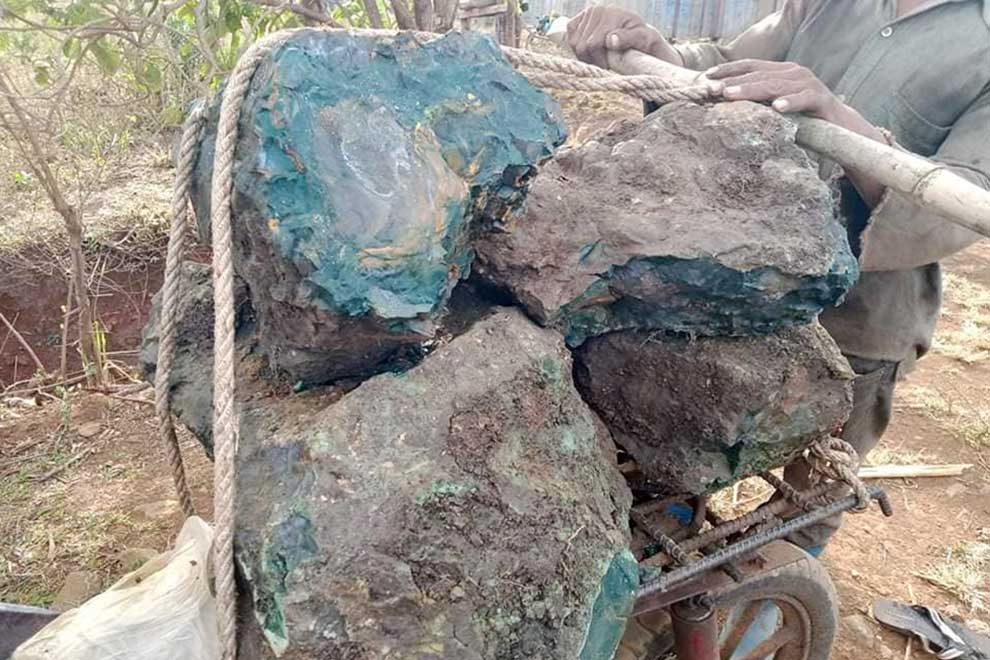
Mondulkiri provincial authorities are investigating alleged digging of blue gemstones in Phnom Prich Wildlife Sanctuary. Kreung Tola Page
The Mondulkiri provincial authorities said they would assign specialists to investigate allegations concerning unknown individuals who had illegally dug blue gemstones in the Phnom Prich Wildlife Sanctuary.
This followed complaints from the Bunong indigenous people in Laokar village in Sen Monorom town’s Sokdum commune who said the illicit mining activities done at the behest of foreign buyers.
District governor Heak Sophan said on January 4 that he had yet to receive details of the allegations, but he would send experts to inspect the location.
“If local people witness anything pertaining to this case, please help to stop it by cooperating with authorities. It’s necessary to report this to the police quickly so the opportunists will not be able to profit from the illegal exploitation of natural resources.
“If any violators are found, they will be stopped,” he said.
Sophan noted that natural resources are abundant in the sanctuary, especially forests and wild animals, but he had not previously heard of precious gemstones in the area.
Collection of natural resources is permitted only by authorities and designated specialists, he added.
Sokdum commune chief Pov Sophat also said he had not received information about the case, but he would conduct an investigation.
“I am not yet familiar with this matter, but I will instruct the village chief to look into it. I think a place that has gemstones of this kind might be deep in a forest. But near this village, there are no such stones.
“If the gems are deep in the forest, it will be difficult for us to protect them. If the culprits are persistent, they could seize an opportunity to dig them when our officials are not present,” he said.
Kreung Tola, a forest conservation activist and representative of the Bunong indigenous people, said on January 4 that the site of the illegal digging is located in an area of the wildlife sanctuary within Sokdum commune.
According to Tola, a group of people had entered the forest about a month earlier to dig for the gems because they had received offers to buy them from Chinese and Vietnamese merchants. The perpetrators lacked an understanding of the law, he said.
Tola explained that the group had removed the gemstones from the forest and taken them home on motorcycles. Traders had then come to buy them, offering $3 to $5 per kg based on their quality.
“We are not certain of the identities of the buyers, but we have seen them waiting in front of people’s houses to buy the stones. The brokers are Khmer, but their bosses are Chinese and Vietnamese nationals. These stones can be cut into rings or jewellery, and now all gemstones are being bought regardless of their colour,” he said.
Pen Bunna, the local community empowerment programme officer at rights group Adhoc, said stone digging or mining in forests without permission is a crime. He urged authorities to take urgent action to stop the violations.
Bunna urged the authorities to educate the local people so that they will join in efforts to protect natural resources. It would be ideal if locals can cooperate with the authorities in conservation efforts because they are already located in the relevant areas, he said.
“I think that if our officials know about criminal or misdemeanour offences, they must take immediate measures to build case files for referral to the courts. They cannot answer that they do not know about the matter or create an excuse to evade their duties.
“If a thorough investigation reveals that officials have benefited from these crimes, then they and the perpetrators should receive the same punishment,” Bunna said.












